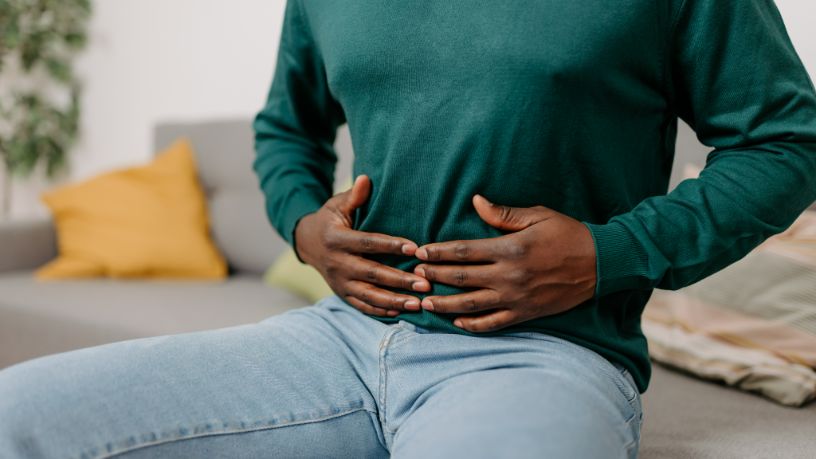Probiotic supplements might seem like an easy way to keep your gut happy, but it’s not as simple as just picking up a bottle at the shops.
On this page
Key takeaways
Probiotics can improve your gut health, but only if you find one with the right kind of bacteria.
Always speak to your doctor before purchasing and taking supplements.
You’ll find probiotic pills and probiotic-infused foods in almost every supermarket and pharmacy, each brimming with friendly bacteria and claims of life-enhancing benefits, from warding off colds to improving digestive health.
But are probiotic supplements really effective?
What are probiotics?
“The subject of probiotics can be confusing,” says gut expert Dr Steven Leach, Researcher and Senior Lecturer at the University of New South Wales.
A probiotic is a living microorganism that, when consumed, plays an important role in your gut.
There are thousands of types of probiotic bacteria, but the 2 most common ones are:
- Lactobacillus
- Bifidobacterium.
Our bodies have a great mix of both good and bad bacteria, but when you become unwell with a gastrointestinal illness, more bad bacteria creep in, putting your system out of balance, Dr Leach explains.
As good bacteria help eradicate the bad ones to restore balance, taking probiotic supplements, the products often claim, can therefore help improve that balance.
Do probiotic supplements actually work?
Dr Leach says that balancing out good and bad gut bacteria is far more complex than just picking up any old probiotic supplement from your pharmacy, as their potential benefits may only work “if you have a specific reason to take them.”
This is due to the complexity of the gut microbiome, the community of bacteria and micro-organisms that lives inside your digestive tract.
The microbiome is complex, and similar gut symptoms that present in 2 different people may be caused by completely different things. Meaning, there’s no one-size-fits-all approach to taking probiotic supplements.
There is evidence that probiotic supplements may have a potential role in preventing and treating atopic dermatitis.1 And some research suggests that probiotics might help with mild-to-moderate ulcerative colitis (alongside conventional treatments).2
But for most people, you’re probably better off saving your money, Dr Leach says. There’s no real evidence to suggest that probiotic supplements benefit anyone who’s already in good health with a normal gastrointestinal tract.2
In general, most probiotics will sit in your gut and your bodies won't even react to them.
One exception, he adds, is “if your gut microbiome is deficient in the specific bacteria contained in the probiotic,” in which case a matching probiotic supplement “may help in the breakdown of some nutrients.”
But in the majority of cases, most probiotic supplements likely won’t contain the exact bacteria you need. Nor are you likely to know what exact bacteria you need in the first place.
What to look for in a probiotic supplement
Dr Leach recommends only taking probiotics if you have a specific reason to take them, such as having an illness with gastrointestinal symptoms or diarrhoea from taking a course of antibiotics.3
In any case, it’s always a good idea to speak to your doctor before taking any probiotic supplement.
“If it’s recommended to take probiotics, you may need do a bit of trial and error to find the right fit for your unique microbiome,” says Dr Leach. “But looking for a probiotic that has a specific health benefit is a good start.”
For example, one meta-analysis suggests that the probiotic strain Saccharomyces boulardii CNCM I-745 is much more effective in treating stomach bugs than C. butyricum and L. acidophilus.4
Or, as research suggests, those suffering from irritable bowel syndrome could benefit from taking Bifidobacterium longum 35624 or Lactobacillus plantarum CCFM8610.5 6
“In most gastrointestinal illnesses your gut microbiome is likely to change and could potentially allow bad pathogenic bacteria to get a foothold in your gut,” says Dr Leach.
“Therefore, the primary health benefit in this case would be to find a probiotic that will add good bacteria to the gut and remove potential pathogens.”
Can you take probiotics during or after a course of antibiotics?
According to Dr Leach, in many cases taking probiotics (such as the bacterial kinds) alongside antibiotics is not ideal, as the antibiotics will most likely just kill the probiotics.
“If you want to take a probiotic during a course of antibiotics, you should be taking a yeast probiotic, as yeast are unaffected by antibiotics,” says Dr Leach.
“You can then use a bacterial probiotic after you have completed your antibiotic course to help the recovery of the natural gut bacteria.”
If you’ve just finished your last dose of antibiotics, it’s important to talk to your doctor before taking probiotics.
While antibiotics are great for fighting off infections, they can also wipe out the good bacteria with the bad, and it can take months or even years for your gut microbiome to fully recover.7
Alongside a diet that includes probiotic-rich food and drinks, you can keep your gut microbiome in check by only taking antibiotics when medically necessary, Dr Leach concludes.

At Bupa, trust is everything
Our health and wellbeing information is regularly reviewed and maintained by a team of healthcare experts, to ensure its relevancy and accuracy. Everyone's health journey is unique and health outcomes vary from person to person.
This content is not a replacement for personalised and specific medical, healthcare, or other professional advice. If you have concerns about your health, see your doctor or other health professional.
1Michail, S. (2009). The role of Probiotics in allergic diseases. Allergy, Asthma & Clinical Immunology, 5, 5.
2National Institutes of Health, Office of Dietary Supplements. (2023). Probiotics. National Institutes of Health.
3Harvard Health Publishing. (2012). Probiotics may help prevent diarrhea due to antibiotic use. Harvard Health Publishing.
4McFarland, L. V., Malfertheiner, P., Huang, Y., & Wang, L. (2015). Meta-analysis of single strain probiotics for the eradication of Helicobacter pylori and prevention of adverse events. World Journal of Meta-Analysis, 3(2), 97-117.
5Sabaté, J. M., & Iglicki, F. (2022). Effect of Bifidobacterium longum 35624 on disease severity and quality of life in patients with irritable bowel syndrome. World Journal of Gastroenterology, 28(7), 732-744.
6Liu, Y., Yu, X., Yu, L., Tian, F., Zhao, J., Zhang, H., Qian, L., Wang, Q., Xue, Z., Zhai, Q., & Chen, W. (2021). Lactobacillus plantarum CCFM8610 Alleviates Irritable Bowel Syndrome and Prevents Gut Microbiota Dysbiosis: A Randomized, Double-Blind, Placebo-Controlled, Pilot Clinical Trial. Engineering, 7(3), 376-385.
7Fessl, S. (2022). What Happens to the Gut Microbiome After Taking Antibiotics?. The Scientist.
You might also like...
Sick of being sick? Boost your gut health
If you often get sick, your gut might be telling you that something’s wrong. Learn more about boosting your gut health.
How the gut microbiome affects IBS and IBD
You gut contains trillions of microorganisms known as a 'microbiome’. Find out how yours may be affecting your IBS or IBD.
Irritable bowel syndrome (IBS): The basics
IBS is a gut disorder that can include symptoms like diarrhoea, bloating and abdominal pain. Find out about the symptoms and how you can get diagnosed.
Bloated or full? Understanding your fluctuating stomach
Do you ever get a ‘food baby’ in your stomach and wonder where it came from? Learn the difference between being bloated and full.





